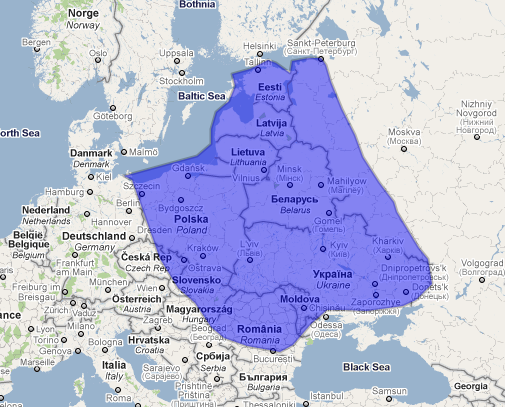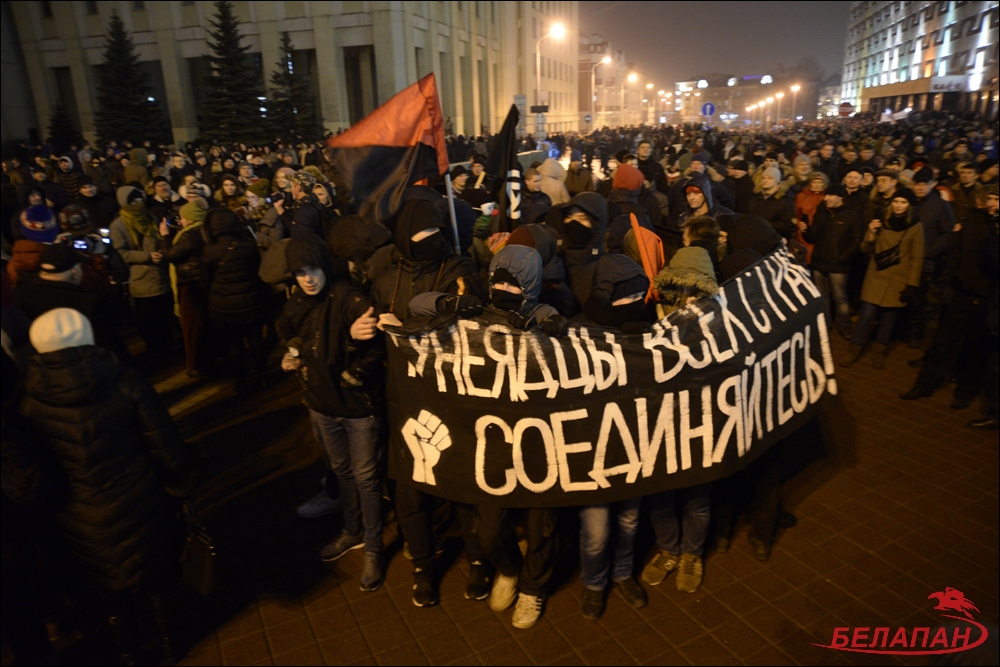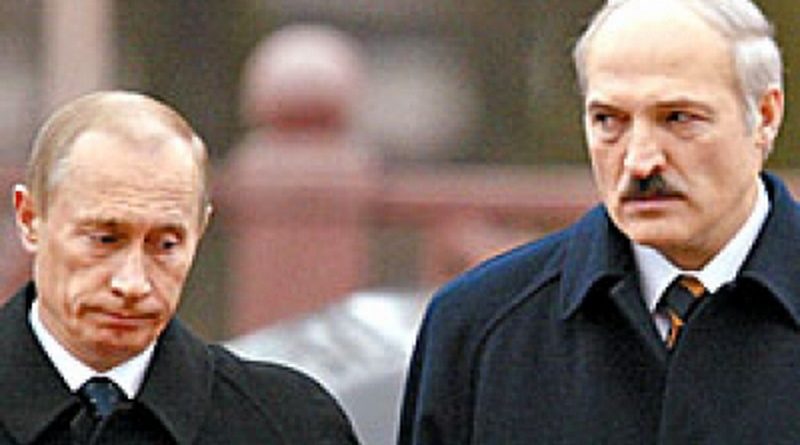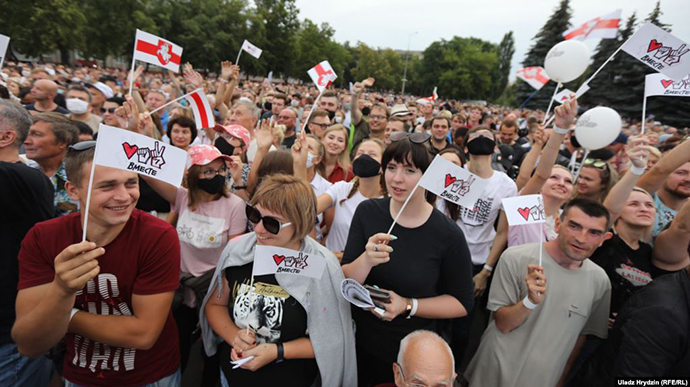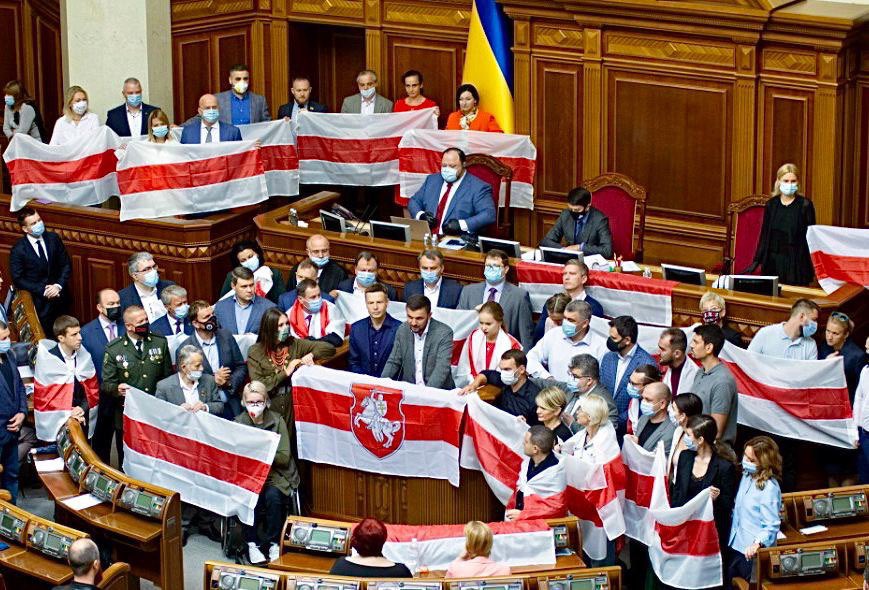Most politicians and analysts in both Moscow and the West are so used to considering the countries in between Russia and Western Europe only along an east-west axis that they fail to pay much attention to the efforts of some of these countries to promote a north-south axis – or dismiss such moves as the work of Washington or Moscow.
Many Russians see any conversations about such a north-south alliance as nothing more than an effort by Poland to recover its former greatness or Washington to push Russia even further away from Europe. And many in the West, typically dismissive of “the countries in between” as actors in their own right, also routinely cast doubt on its potential.
But in fact, this north-south grouping of countries from Baltic states in the north to Ukraine, Moldova and even Georgia in the south is currently marked by ever more intensive efforts to find ways for the governments involved to support one another both directly and by making appeals to others.
Yesterday, at a mini-NATO summit in Bucharest, nine countries – Poland, Romania, Slovakia, Bulgaria, the Czech Republic, Latvia, Lithuania and Estonia signed a joint declaration calling for NATO to maintain a permanent presence in their countries to deter Russian aggression.
The nine countries said that this was a necessary response to “the illegal annexation of Crimea by the Russian Federation, an action which casts doubt on the security of the entire continent.” In addition, the nine called on NATO to expand cooperation with the European Union and on Russia to respect international law.
The idea of a Baltic-Black Sea alliance has a long and complicated history. See in particulate Marek Jan Chodakiewicz’s magisterial Intermarium: The Land between the Black and Baltic Seas (Transaction, 2012), and the present author’s “New Polish President Makes Baltic-Black Sea Alliance a Centerpiece of His Foreign Policy,” August 13, 2015.
And it is clear that the obstacles to its formation both from Moscow and the West and within its possible ranks, especially Belarus and Ukraine, are extremely large, making it easy for many to dismiss this out of hand. But there are at least two reasons why doing so is almost certainly a mistake.
- On the one hand, being forced to look at a region of the world from a different perspective on that focuses on an unfamiliar matrix is useful in and of itself as a heuristic device.
- And on the other, discussions about the possible creation of such an alliance puts in play ideas which may resonate far beyond the scope of those who offer them.
If the document signed in Bucharest is the most obvious high-level realization of the current drive to create an Intermarium, the resolution of a meeting of NGOs from across the region in Warsaw a week ago shows the direction in which thinking about the possibilities of a different approach among those in this region are taking.
Below is a translation of the resolution of the Baltic-Black Sea Community at Warsaw, October 27, 2015, that was provided to the author by one of the participants:
“Guided by the principles of humanism and international law, the participants of the constituent conference in Warsaw adopt the following resolution:
1. We consider the Russian Federation an aggressor since March 2014 for its military intervention in sovereign Ukraine and with its seizure of Crimea and the eastern portion of the country. We demand an end of the occupation.
2. We call upon the authorities of Ukraine to create a Crimean Tatar national-territorial autonomy within Ukraine.
3. We support the action of the Crimean Tatar people by means of the economic blockade of Crimea, which is based on the principles of non-use of force.
4. We recognize the territory of the Chechen Republic Ichkeria as territory occupied by Russia since 1999.
5. We call upon the countries of the West and the Middle East to provide all possible assistance to Chechen refugees who have fled their motherland in order to save themselves from persecution by the occupiers.
6. We consider the alienation by Russia via military means of Georgian territories in 2008 as illegal and view these territories as occupied to this day.
7. We call upon FIFA to review its decision to award the 2018 World Cup competition to Russia, a country which is in occupation of others.
8. We demand that Russia withdraw its forces from all territories of the Chechen Republic Ichkeria, Georgia and Ukraine it now occupies in order to allow the restoration of legitimate authorities.
9. We welcome the efforts of the Global Coalition in support of the legislation ‘On human rights in North Korea’ …
10. We demand the withdrawal from the territory of Belarus all Russian military bases and all Russian units on Belarusian territory.”




